Unlocking the Secrets of Sustainable Water Solutions with Advanced Well Drilling Supplies Leading the Market Transition
In an increasingly water-scarce world, the quest for sustainable water solutions has never been more urgent. The necessity for reliable and efficient access to clean water drives innovation in various sectors, notably in well drilling technologies. Advanced well drilling supplies are at the forefront of this transformation, providing the tools and equipment essential for constructing wells that meet modern demands for sustainability and efficiency. As we explore the significance of these innovations, we will uncover how they not only enhance water access but also contribute to the broader goal of environmental stewardship.

The market transition towards sustainable water solutions is marked by the adoption of cutting-edge well drilling supplies that maximize efficiency while minimizing environmental impact. These supplies not only streamline drilling operations but also ensure the protection of vital ecosystems and groundwater resources. By employing advanced techniques and materials, the well drilling industry is navigating the complex challenges posed by climate change and population growth, leading the way in establishing sustainable practices that communities can rely on. Through this exploration, we aim to highlight the powerful role played by well drilling supplies in addressing the global water crisis and fostering a more sustainable future.
Innovative Technologies Driving Sustainable Well Drilling Practices
The push for sustainable water solutions is increasingly being driven by innovative technologies that enhance well drilling practices. Recent advancements, such as the exploration of non-mechanical drilling technologies, demonstrate how laser energy combined with cryogenic gas can revolutionize geothermal drilling. This technique not only offers a more efficient way to fracture rocks but also minimizes the environmental impact commonly associated with traditional drilling methods. Such innovations pave the way for cleaner, sustainable water extraction processes that could reshape the industry.
Moreover, companies are harnessing digitalization and robotics to maximize drilling efficiency and minimize carbon footprints. By focusing on decarbonization and diversification, these firms are adapting to meet the new demands of a sustainable future. Technologies aimed at reducing resource consumption and improving waste management are also essential in transitioning to sustainable water solutions. These efforts highlight a broader trend toward integrating ecological considerations within well drilling practices, ensuring that water extraction can align with global sustainability goals.
Key Materials Revolutionizing Water Extraction Efficiency
In the quest for sustainable water solutions, the key materials driving advancements in water extraction efficiency are becoming increasingly significant. Innovative technologies such as 3D-printed catalysts are enhancing the efficiency of catalytic water treatment systems. These catalysts, designed with optimized porosity and surface area, increase active site exposure, leading to improved treatment performance.
As water scarcity and pollution issues intensify globally, leveraging such cutting-edge materials becomes essential for effective water management.
Additionally, the integration of advanced drilling supplies that incorporate smart technologies can significantly enhance the operational efficiency of well drilling. Innovations inspired by practices in critical minerals recovery, such as those seen in copper extraction technologies, demonstrate how improved techniques can minimize environmental impacts while maximizing resource yield. The ongoing exploration of these advanced materials and technologies is crucial, not only for water extraction but also for fostering a broader market transition towards sustainable practices in resource management.
Best Practices for Implementing Eco-Friendly Water Solutions
Implementing eco-friendly water solutions begins with the careful selection of advanced well drilling supplies. These materials not only enhance the efficiency of water extraction but also minimize environmental impact. For instance, using biodegradable drilling fluids can significantly reduce the potential contamination of groundwater sources. Additionally, opting for coring techniques that preserve the integrity of surrounding ecosystems is crucial. By prioritizing sustainable supplies, water extraction can become a less invasive process while ensuring long-term water security.
Training personnel in best practices is equally essential for effective eco-friendly water management. Crews should be educated on the importance of minimizing water wastage and employing monitoring systems to assess water quality. Integrating renewable energy sources, such as solar-powered pumps, can further support sustainability goals. Collaborative community engagement also plays a vital role; stakeholders can work together to create awareness and develop localized solutions that address specific water challenges while promoting conservation efforts. Through these strategies, a holistic approach to sustainable water solutions can be established, paving the way for a healthier planet.
Market Leaders in Advanced Well Drilling Supplies: A Comparative Analysis
The well drilling supplies market is witnessing a significant transformation, driven by the increasing demand for advanced technologies in sustainable water solutions. According to market projections, the global well logging tools market is expected to grow from $8.79 billion in 2025 to $12.72 billion by 2032, reflecting a robust CAGR of 5.42%. This growth is indicative of the industry's shift towards innovative drilling solutions that prioritize sustainability and efficiency.
In parallel, the Managed Pressure Drilling (MPD) services market is on an upward trajectory, with a valuation of USD 4.3 billion in 2025, projected to reach USD 5.9 billion by 2035, corresponding to a CAGR of 3.2%. The importance of MPD lies in its ability to enhance the precision of drilling processes, which is crucial in minimizing environmental impacts and maximizing the use of water resources. The advancements in these sectors highlight a comparative analysis of market leaders who are navigating the challenges posed by traditional practices and embracing cutting-edge technologies to lead in sustainability.
Future Trends in Sustainable Water Resource Management and Drilling Techniques
The future of sustainable water resource management is intricately tied to advancements in well drilling techniques. As the demand for efficient water sourcing escalates, innovative drilling supplies take center stage in the transition towards sustainable practices. Reports indicate that the global drilling services market is expected to witness substantial growth, projected to increase from $9,417.5 million in 2025 to about $14,343.7 million by 2033, with a compound annual growth rate of 5.4%. This growth highlights the urgent need for practices that prioritize sustainability alongside efficiency.
**Tip:** When considering drilling supplies, focus on technologies that enhance water conservation. Opt for equipment that reduces waste during the extraction process, ensuring that available resources are used judiciously.
Emerging trends in drilling techniques emphasize eco-friendly methods that align with global sustainability goals. Innovations such as remote monitoring, data analytics, and advanced materials are poised to revolutionize how we access and manage water resources. These technologies not only improve drilling accuracy but also minimize environmental impact, making them critical for the future of water resource management.
**Tip:** Stay informed about new certifications and standards in drilling practices that promote green initiatives. Selecting suppliers who prioritize eco-friendly approaches can significantly contribute to sustainable resource management.
Unlocking the Secrets of Sustainable Water Solutions with Advanced Well Drilling Supplies
| Dimension | Current Trends | Future Predictions |
|---|---|---|
| Water Consumption Efficiency | Increasing focus on minimizing waste, standard practices see up to 30% reduction | Projected 50% efficiency improvement with new technologies by 2030 |
| Drilling Technology Innovation | Adoption of rotary drilling and sonic drilling techniques | Emergence of autonomous drilling solutions by 2025 |
| Use of Renewable Energy | Solar-powered pumping systems gaining momentum | Projected integration of wind energy in drilling operations by 2030 |
| Water Quality Monitoring | Increasing implementation of IoT sensors for real-time monitoring | Full automation in monitoring processes expected by 2025 |
| Community Engagement | Stronger collaboration with local communities in project planning | Emphasis on stakeholder education and involvement increasing |
Related Posts
-
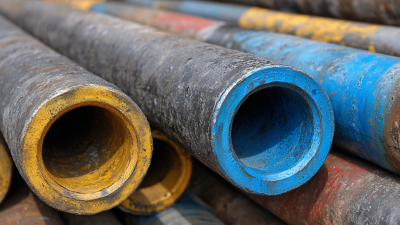
Understanding the Importance of Water Well Pipe Selection for Safe Water Access
-
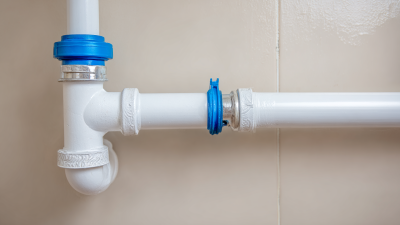
Understanding the Benefits and Applications of PVC Water Pipes in Modern Plumbing Systems
-

Essential Guide to Choosing the Right Water Well Supplies for Sustainable Water Management
-
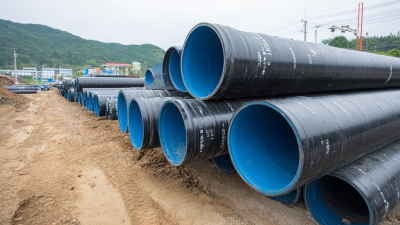
Exploring the Latest Innovations in Pipe Supplies: What You Need to Know for Your Projects
-
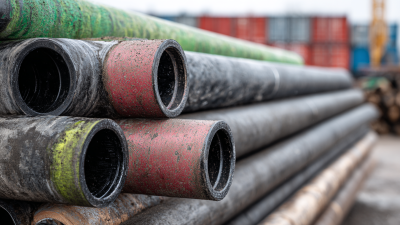
The Evolution of Plastic Pipe: Sustainable Solutions for Modern Infrastructure
-
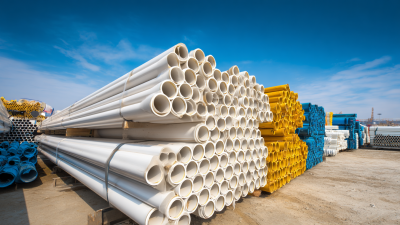
Understanding the Rapid Growth of PVC Supplies Market with Insights from Industry Trends and Data Analysis
